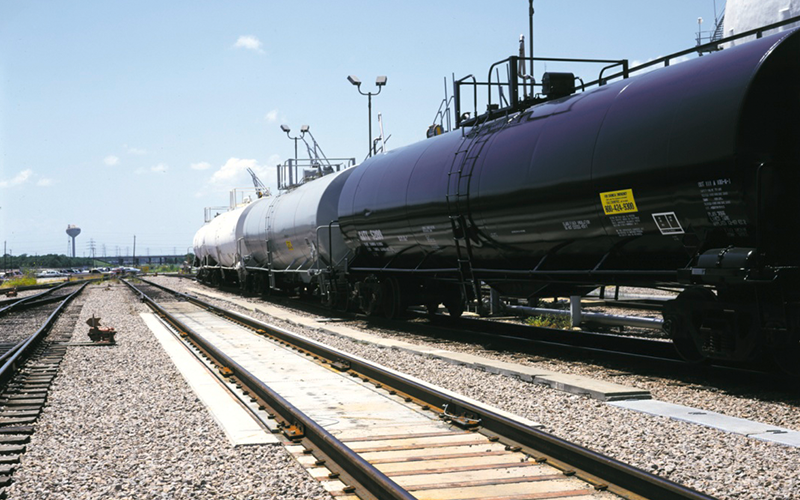WHAT TYPE OF RAIL SCALE SHOULD I GET?
One of the first questions potential rail scale owners want to know when they call our company is: how much does it cost? This is a difficult question to answer because it depends on the type of rail scale needed as well as a variety of other decisions you will need to make. This article will help you answer the first question you must ask when pricing out a rail scale: do I need a legal for trade rail scale?
LEGAL FOR TRADE VS NON-LEGAL FOR TRADE
The first decision you must make is whether or not you need a legal for trade rail scale. Scale manufacturers work to ensure that their scales meet the standards of certain organizations. If you sell products commercially based on weight, it is required by law that the scale you use is 'legal for trade'. Legal for trade rail scales are typically more precise and are usually permanent rail car weighing solutions. These systems tend to be more complex, require a concrete foundation, and usually have a longer installation time. As a result, a legal for trade rail scale generally requires a larger up-front investment.
| Legal for Trade | Non Legal for Trade |
|---|---|
| Increased accuracy | Reduced accuracy compared to legal for trade |
| NTEP certified | Not NTEP certified |
| Specific approach requirements | Reduced foundation & approach requirements |
| Static or Weigh in motion (WIM) | Static or Weigh in motion (WIM) |
| Above ground foundation Or Pit style foundation | Foundationless options available |
If you do not need legal for trade approval, you can choose a non-legal for trade rail scale. These scales are ideal for many applications, including the following:
• Determining the gross or tare weight for rail cars
• Verifying weights of outbound rail cars do not exceed overload limits
• Ensuring rail carloads are safely balanced
• Checkweighing inbound rail cars
• Filling rail cars to the optimal weight within legal limits
• Incoming and outgoing inventory verification
To help clarify whether or not you need a legal for trade rail scale, here are a few real-world scenarios.
| Scenario | Legal for trade required? (Yes / No) |
|---|---|
| Scale owner is a regional scrap metal operation. They are moving product via rail, and they want to checkweigh rail cars to prevent overloading and being charged overage fees from the rail line. | NO. Since the scale owner is only weighing the rail cars to avoid overweight fines from the rail road operator, a legal for trade scale is not required. |
| Scale owner is a national paper and pulp producer. They receive wood chips via rail and checkweigh the product before unloading to verify how much they are purchasing from their supplier | NO. The scale owner is simply weighing inbound rail cars of product they already own. |
| Scale owner is a multi-national fortune 500 food producer. They are using the scale to weigh product and buy / sell in a commercial transaction. | YES. Every state requires that scales used in commerce (sales) must be legal for trade with the appropriate certification. |
So how much do Rail Scales cost?
For pricing guidelines for non-legal for trade rail scales, "How Much Does A Non Leagal For Trade Scale Cost?"
For pricing guidelines for legal for trade rail scales, "How Much Does A Legal For Trade Scale Cost?"
At American Scale we strive to bring you informed and useful content on all things scale related. Be sure to check out our legal for trade truck scale system articles about truck scale foundation or how much do truck scales cost. We even have a guide to warranties. We also have articles on scale accessories, common problems to prolong your scales lifespan, weighing applications as well as what scale indicator works best with your junction box. To learn more about bench scales, it would be good to check out our other articles such as “Bench Scale Basics'' and “How Much Does A Bench Scale Cost?”. These articles will help with the basics of bench scale ownership.

